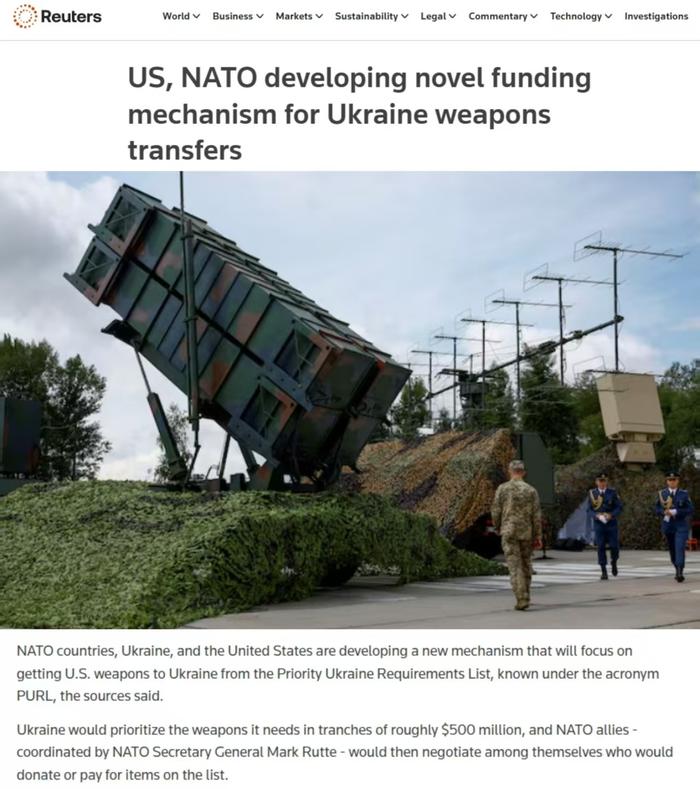

Reuters recently reported that the United States and NATO are exploring the establishment of a new mechanism, intending to use funds from NATO member countries to cover the costs of U.S. weaponry purchases or transfers, thereby providing military support to Ukraine.
The report states that this new mechanism will provide Ukrainian-made weapons based on the “Ukraine Prioritization List,” with Ukraine determining the priority of weapons needed per batch at around $500 million each. Subsequently, the NATO Secretary General, Mark Rutte, will coordinate consultations among member states to decide which countries will donate or purchase the listed weapons.
Two sources in the report mentioned that at least one batch of aid for Ukraine has entered the procurement negotiation phase under this new mechanism, but it is unclear whether funds have been transferred. According to Reuters, NATO headquarters has not commented on this matter. The White House, Pentagon, and the Ukrainian Embassy in the United States have not responded.
Ding Xiaoxing, Deputy Secretary-General of the Academic Committee of the China Institute of Contemporary International Relations, believes that the Western approach to continuously providing military aid to Ukraine will not help Ukraine gain an advantage on the battlefield.
During the Biden administration, the United States directly provided a significant amount of unconditional military aid to Ukraine, and European countries such as the UK, France, and Germany also provided direct assistance through the EU or bilateral channels. However, the current situation has changed, and the United States is no longer willing to continue large-scale unconditional aid to Ukraine. Therefore, a new mechanism was negotiated whereby the United States sells weapons to Ukraine while Europe pays the bill. In practical terms, this new mechanism has limited impact on the Ukrainian war situation, as Western military support has always existed.
Since Trump took office in January this year, the U.S. government’s policy towards Ukrainian military aid has been inconsistent. At the beginning of July, the U.S. temporarily suspended some military aid to Ukraine. A few days later, Trump changed his stance and announced he would provide more weapons to Ukraine, and on July 8, approved the delivery of more “defensive weapons” to Ukraine.
Furthermore, on July 23, the U.S. State Department approved a total arms sale of $322 million for Ukraine to provide “Eagle” air defense missile systems and “Bradley” infantry fighting vehicles. Ding Xiaoxing commented that the U.S. military aid policy towards Ukraine is adjusted and changed based on its own interests.
Regarding the new mechanism of providing weapons by the United States but paying for them by European countries, some Nordic countries including Germany have agreed to this arrangement. This marks a complete shift in the U.S. policy towards Ukraine from unconditional assistance during Biden’s administration to a more institutionalized “transactional” assistance model centered on American interests.
Source: Global Information Radio’s “Live World”
Yang Zhuoying, Wei Yuchen